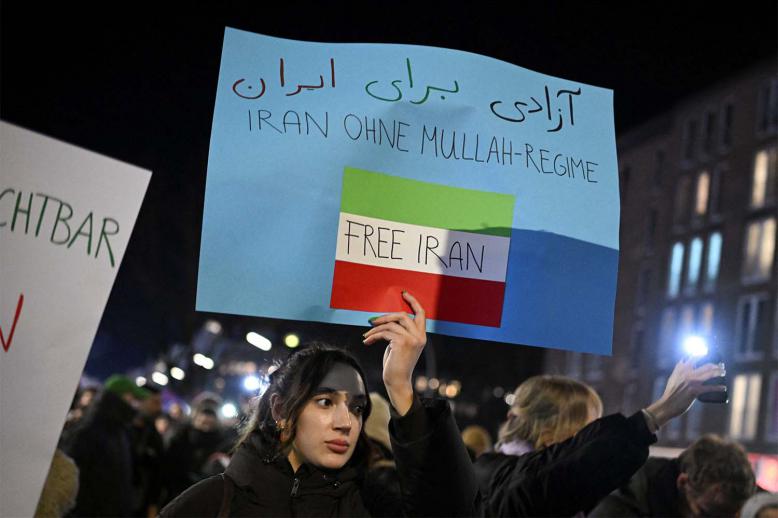Turkey seen as reintroducing state of emergency through ‘back door’
ISTANBUL — A decision to keep a US pastor in detention despite high-level pleas from Washington for his freedom and new security measures blasted as unconstitutional by critics are signals that Turkey is keeping up the pressure on suspected foes despite formally ending a state of emergency two years after a coup attempt.
Ignoring appeals from US President Donald Trump and leading members of the US Congress, a court in western Turkey ruled on July 18 to keep US clergyman Andrew Brunson in custody at least until the next court hearing on October 12. Brunson was detained in October 2016 on terrorism and spying charges. He could be sentenced to 35 years in prison if convicted.
The Brunson case could have far-reaching consequences for US-Turkish relations. In a tweet July 19, Trump called Brunson’s detention “a total disgrace” and accused Turkey of holding the pastor to extract concessions: “He has been held hostage far too long.”
It was unclear whether Trump was referring to Ankara’s call for the United States to extradite Fethullah Gulen, a Muslim cleric living in Pennsylvania who is accused by Turkey to have organised the coup attempt of July 2016.
Trump’s criticism reflects growing irritation among US policymakers over Turkey’s course. The US Senate passed a measure in June that would prohibit Turkey from buying Lockheed Martin F-35 jets because of Brunson’s imprisonment and Turkey’s purchase of Russia’s S-400 air defence system.
However, Turkish President Recep Tayyip Erdogan, bolstered by an election victory last month that gave him additional powers under a new presidential system, showed no inclination of freeing Brunson, who has been described as a dangerous enemy of Turkey by the pro-government media, or of ending a clampdown on other suspected enemies that has alarmed Ankara’s Western allies and the United Nations.
In response to Trump’s criticism, the Turkish Foreign Ministry pointed to the trial against Brunson. “Turkey is a country with the rule of law,” spokesman Hami Aksoy said.
Erdogan allowed the state of emergency, introduced a few days after the failed coup on July 15, 2016, to run out. The step was in part a response to calls by the European Union and business leaders and investors who demanded a return to normalcy because of mounting difficulties for the Turkish economy.
As emergency rule wound down, Ankara moved to change anti-terror laws to give security forces powers resembling those under emergency law. The opposition says the new laws are designed to reintroduce the state of emergency through the back door.
Speaking before hundreds of thousands of supporters on the anniversary of the coup attempt, Erdogan said the threat to the state “does not end.” He said all “cells” of Gulen supporters would be destroyed by Turkey’s security forces.
Under the state of emergency, approximately 150,000 civil servants, soldiers and policemen were sacked from their posts and almost 160,000 people were arrested on charges of belonging to the Gulen network, the United Nations said. Hundreds of associations and media outlets were shut down. A UN report in March said the state of emergency led to “profound human rights violations against hundreds of thousands of people.”
The European Union, which Turkey wants to join, welcomed the end of the state of emergency but said “concrete and lasting improvements in the area of rule of law and fundamental freedoms” were essential to improve relations.
Critics say the very opposite is happening. Following seven renewals since 2016, the state of emergency officially ended at midnight July 18 but the government introduced a bill in parliament that hardens the country’s anti-terror laws. If approved by parliament, the package would allow authorities to press ahead with mass dismissals of civil servants and hold some suspects in custody for up to 12 days.
The new laws, to be in force for three years, would allow governors to bar entry into certain regions for up to 15 days. Open-air demonstrations would be restricted to daylight hours. A vote in the general assembly in Ankara, where Erdogan’s party and a right-wing ally have a clear majority, could be called soon.
Metin Feyzioglu, the chairman of Turkey’s Bar Association, said some of the new measures violated the constitution. The European Union said the adoption of the package would “dampen any positive effect” of the end of the emergency rule.
Ankara argues the anti-terror measures are necessary because the country is under threat from several groups, including the Gulen movement, Kurdish militants and the Islamic State but the opposition says the government is looking for ways to suppress dissent. “They are bringing to parliament new legislation that is aimed at making the state of emergency permanent,” opposition leader Kemal Kilicdaroglu said of the anti-terror laws.
Emma Sinclair-Webb, Turkey director of Human Rights Watch, said the anti-terror bill contained “many concerning provisions.” She, in an interview, said she was especially worried about a rule that allowed the government to fire judges arbitrarily, a step that would further erode the independence of the judiciary. “That’s like a Damocles sword hanging over them,” she said about the effect of the rule on judges.
Thomas Seibert is an Arab Weekly contributor in Istanbul.
Copyright ©2018 The Arab Weekly — distributed by Agence Global







